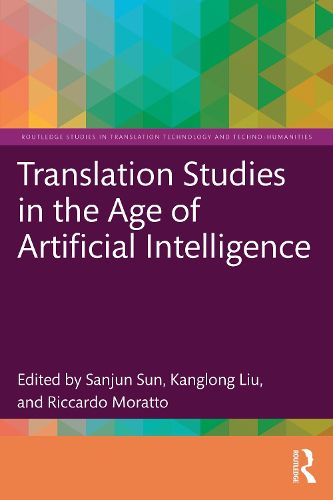Readings Newsletter
Become a Readings Member to make your shopping experience even easier.
Sign in or sign up for free!
You’re not far away from qualifying for FREE standard shipping within Australia
You’ve qualified for FREE standard shipping within Australia
The cart is loading…






Sun, Liu, Moratto, and the team of contributors provide an in-depth exploration of the implications of artificial intelligence (AI) in the ever-evolving field of translation studies.
With key insights to inform future research on this rapidly evolving field in translation, this book offers a comprehensive understanding of the implications of AI, particularly ChatGPT, across technical, pedagogical, and ethical dimensions. From the evolution of translation competence and quality assessment to methodological shifts in research and pedagogy, the authors shed light on the capabilities and limitations of AI, offering insights into its potential within the realm of translation studies. With fresh perspectives on the intersection of AI and translation studies, the chapters cover critical topics such as evaluating translation quality, translator training, corpus translation studies, and ethical considerations in translation education.
By systematically unpacking the implications of AI, this book offers valuable insights for researchers, educators, and practitioners interested in translation and interpreting studies, machine-learning, and the role of AI in translator training and education.
$9.00 standard shipping within Australia
FREE standard shipping within Australia for orders over $100.00
Express & International shipping calculated at checkout
Sun, Liu, Moratto, and the team of contributors provide an in-depth exploration of the implications of artificial intelligence (AI) in the ever-evolving field of translation studies.
With key insights to inform future research on this rapidly evolving field in translation, this book offers a comprehensive understanding of the implications of AI, particularly ChatGPT, across technical, pedagogical, and ethical dimensions. From the evolution of translation competence and quality assessment to methodological shifts in research and pedagogy, the authors shed light on the capabilities and limitations of AI, offering insights into its potential within the realm of translation studies. With fresh perspectives on the intersection of AI and translation studies, the chapters cover critical topics such as evaluating translation quality, translator training, corpus translation studies, and ethical considerations in translation education.
By systematically unpacking the implications of AI, this book offers valuable insights for researchers, educators, and practitioners interested in translation and interpreting studies, machine-learning, and the role of AI in translator training and education.